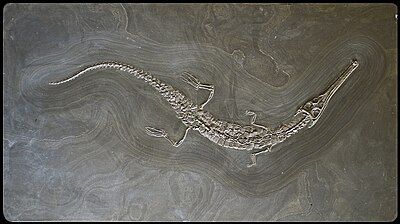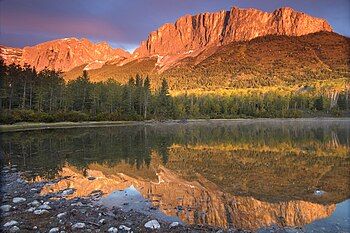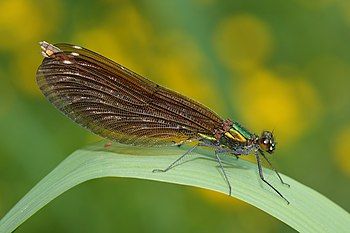Wikipedia:Picture of the day/March 2014
|
Featured picture tools: |
These featured pictures, as scheduled below, appeared as the picture of the day (POTD) on the English Wikipedia's Main Page in March 2014. Individual sections for each day on this page can be linked to with the day number as the anchor name (e.g. [[Wikipedia:Picture of the day/March 2014#1]] for March 1).
You can add an automatically updating POTD template to your user page using {{Pic of the day}} (version with blurb) or {{POTD}} (version without blurb). For instructions on how to make custom POTD layouts, see Wikipedia:Picture of the day.
March 1

|
Arp 273 is a group of interacting galaxies, lying 300 million light years away in the constellation Andromeda and first discovered in 1966. In this photograph from the Hubble Space Telescope, the larger of the spiral galaxies, known as UGC 1810, has a disk that is tidally distorted into a rose-like shape by the gravitational tidal pull of the companion galaxy below it, known as UGC 1813. A swath of blue jewels across the top is the combined light from clusters of intensely bright and hot young blue stars. Photograph: NASA, ESA, and the Hubble Heritage Team
Recently featured:
|
March 2

|
A fossil of Steneosaurus bollensis, from the extinct genus of teleosaurid crocodyliforms Steneosaurus. This specimen was found in Holzmaden, Germany, and dates from the Early Jurassic (185 million years ago). Photograph: Didier Descouens
Recently featured:
|
March 3

|
The Bode Museum on Museum Island in Berlin, Germany, named after its founding director, is a museum of antiquities including sculpture, Byzantine art and numismatics. Designed by Ernst von Ihne and completed in 1904, the building was restored extensively from 1997 to 2006. Photograph: Thomas Wolf
Recently featured:
|
March 4

|
Riin Tamm (born 1981) is an Estonian geneticist working at the University of Tartu, and a science popularizer. Her writings have appeared in various popular and academic media. Photograph: Lauri Kulpsoo
Recently featured:
|
March 5

|
A depiction of the Boston Massacre, an incident on March 5, 1770, in which British Army soldiers killed five male civilians and injured six others in Boston, Massachusetts. Eight soldiers, one officer, and four civilians were arrested and charged with murder, though all but two were acquitted; two soldiers were convicted of manslaughter and sentenced to branding. During the era of discontent that led to the American Revolution, this event was used for anti-British propaganda. Engraving: Paul Revere
Recently featured:
|
March 6

|
The Leaden Flycatcher (Myiagra rubecula) is a species of passerine bird in the family Monarchidae. Found in the mangrove forests of eastern and northern Australia, Indonesia, and Papua New Guinea, males are a shiny lead-grey with white underparts, while females have grey upperparts and a rufous throat and breast. This specimen was photographed in the Australian National Botanic Gardens, Canberra. Photograph: JJ Harrison; edit: John O'Neill
Recently featured:
|
March 7

|
|
The lake at St. James's Park, viewed from the Blue Bridge. St. James's Park in the City of Westminster, central London, is the oldest of the Royal Parks of London. Established in 1603 after a marsh was drained, the park was once home to camels, crocodiles, and an elephant. Photograph: Colin
Recently featured:
|
March 8

|
Voltairine de Cleyre (1866–1912) was an American anarchist writer and feminist, prolific in her opposition to the state, marriage, and the domination of religion in sexuality and women's lives. She began her activist career in the freethought movement, initially drawn to individualist anarchism but evolved through mutualism to an "anarchism without adjectives." Emma Goldman described her as "the most gifted and brilliant anarchist woman America ever produced". Photograph: Unknown; restoration: Adam Cuerden
Recently featured:
|
March 9

|
"Mariana" is a poem by Alfred, Lord Tennyson, published in 1830. It was inspired by William Shakespeare's Measure for Measure, though possibly drawing on influences from sources as varied as Sappho and Keats. It depicts a young woman lamenting her isolation from society, and her despair at her lover's absence, using imagery of a decaying wasteland surrounding Mariana's house to convey her emotions and isolation. The poem was well received at publication; one modern scholar described Mariana as "the most famous heroine of the 1830 volume". Photogravure illustration: W. E. F. Britten; restoration: Adam Cuerden
Recently featured:
|
March 10

|
The Rufous-tailed Robin is a small passerine bird. It breeds in forests in the taiga of northeastern Asia and south to Mongolia, and winters in Southeast Asia and southern China; this specimen was photographed in Thailand. Photograph: JJ Harrison
Recently featured:
|
March 11

|
Vyborg Castle is a Swedish-built medieval fortress around which the town of Vyborg evolved. Built in the 13th century, it served to defend the Swedes against Russians for over 400 years, although it is now located in the latter country. The castle currently serves as a museum. Photograph: A.Savin
Recently featured:
|
March 12

|
An 1873 print promoting the Grange, the oldest U.S. agricultural advocacy group with a national scope. In 2005 it had 160,000 members. The central scene shows a farmer with one foot on his shovel, captioned "I Pay for All". From left to right, the top insets show a farmer's fireside and the Grange in session; the bottom ones show a harvest dance, a broken-down cabin signposted "Ignorance" and "Sloth", and a Biblical scene of the gleaners Ruth and Boaz. Poster: J. Hale Powers & Co. Fraternity & Fine Art Publishers; restoration: Trialsanderrors
Recently featured:
|
March 13

|
The Zanzibar red colobus (Procolobus kirkii) is a species of red colobus monkey endemic to Unguja, the main island of the Zanzibar Archipelago. Brought to attention of Western science by Sir John Kirk, this colobus was first described by John Edward Gray in 1868. It is now considered an endangered species, and extensive conservation efforts have been undertaken since the mid-1990s. Photograph: Hasin Shakur
Recently featured:
|
March 14
|
The villages of Ambleside and Waterhead, Cumbria, North West England, as viewed from Loughrigg Fell; Ambleside is centre-left, and Waterhead is the smaller village on the right at the edge of Windermere. Photograph: David Iliff
Recently featured:
|
March 15

|
The Mangrove Robin (Peneoenanthe pulverulenta) is a species of bird in the family Petroicidae which lives in the mangrove forests of Australia, Indonesia, and Papua New Guinea. These birds feed on insects, hunting those found in the mud after the tide ebbs; they may also feed on crabs. Photograph: JJ Harrison
Recently featured:
|
March 16

|
USS Arizona, a Pennsylvania-class battleship of the United States Navy, photographed while passing through New York City in 1916. When building, the New York Times boasted that the ship would be "the world's biggest and most powerful ... superdreadnought ever constructed". Arizona passed through New York multiple times during her career before being transferred to the Pacific Ocean. She was later sunk during the attack on Pearl Harbor and remains there as a memorial today. Photograph: Unknown; Restoration: Bruce C. Cooper, Chris Woodrich
Recently featured:
|
March 17

|
Centaurus A, a prominent galaxy in the constellation of Centaurus, in a colour composite of images obtained with three instruments. Discovered in 1826 by James Dunlop, Centaurus A is a highly visible starburst galaxy which is only visible from low northern latitudes and the southern hemisphere. Photograph: ESO/WFI (Optical); MPIfR/ESO/APEX/A.Weiss et al. (Submillimetre); NASA/CXC/CfA/R.Kraft et al. (X-ray)
Recently featured:
|
March 18
|
An advertisement for a 1927 enactment of the Indian rope trick by stage magician Howard Thurston. This form of stage magic is said to have been performed in and around India during the 19th century, though the factuality of this has been disputed. Poster: The Otis Lithograph Co.; Restoration: Adam Cuerden
Recently featured:
|
March 19

|
The Lifeboat is Taken through the Dunes, painted by Michael Ancher in oils on canvas in 1883. It is representative of themes the painter often covered, fishermen and other scenes from the Danish port of Skagen. Painting: Michael Ancher
Recently featured:
|
March 20

|
The Bernina Express passing over the Brusio spiral viaduct. Located near Brusio, Graubünden, Switzerland, the single track nine-arched stone spiral railway viaduct was opened in 1908. It is part of the World Heritage-listed Bernina railway. Photo: David Gubler
Recently featured:
|
March 21

|
Dense fog over the Gangetic plains of the Indian Subcontinent, with the Himalayas to the north and the Bay of Bengal at bottom right, as imaged by a NASA satellite on 23 December 2012. Fog is a collection of liquid water droplets or ice crystals suspended in the air at or near the Earth's surface; it is closer to the Earth's surface than clouds and denser than mist. Photo: NASA Earth Data - LANCE Web Mapping Service, MODIS Rapid Response System
Recently featured:
|
March 22

|
|
The burning of McPhersonville, South Carolina, as depicted by William Waud, in both a preliminary sketch (top) and an engraving published in Harper's Weekly in 1865. During the American Civil War (1861–65), McPhersonville was a Confederate stronghold. Early in the Carolinas Campaign, Union forces under Maj. Gen. William Tecumseh Sherman razed the town, leaving only two pre-war homes and one church. Engraving: William Waud; Restoration: Adam Cuerden
Recently featured:
|
March 23

|
|
A panorama of the east face of hills showing strata from the John Day Formation in the Painted Hills Unit of the John Day Fossil Beds National Monument, in the U.S. state of Oregon. The strata, which vary in age from 18 million to 39 million years, were formed mainly from ashfalls from volcanoes to the west. The sediment layers vary in their chemical composition and color owing to the ash and other debris falling during varied climatic and volcanic conditions. Photograph: Finetooth
Recently featured:
|
March 24

|
John Jay (1745–1829), an American statesman and judge, in a portrait by Gilbert Stuart. Born into a wealthy family of merchants, he became a lawyer and organized opposition to British rule. During the American Revolution, Jay was an ambassador and Secretary of Foreign Affairs. Later he contributed to the Federalist Papers supporting ratification of the new U.S. Constitution; when it was adopted in 1789, he was made the first Chief Justice, a position he held until elected governor of New York in 1795. He then helped begin the process that emancipated all of the state's slaves. Painting: Gilbert Stuart
Recently featured:
|
March 25

|
Mount John Laurie is a mountain found in Alberta, Canada. Part of the Canadian Rockies, it is a popular rock climbing destination. Photograph: Chuck Szmurlo
Recently featured:
|
March 26

|
John Herschel was an English mathematician, astronomer, chemist, inventor, and experimental photographer. He named seven moons of Saturn and four moons of Uranus, invented the cyanotype and actinometer, and wrote extensively on topics including meteorology, physical geography and the telescope. Photograph: Julia Margaret Cameron; restoration: Adam Cuerden
Recently featured:
|
March 27

|
Sarah Vaughan (1924–1990), an American jazz singer described by Scott Yanow as having "one of the most wondrous voices of the 20th century", pictured performing in 1946. Vaughan began her career in the early 1940s and was a star within a few years, signing with Musicraft Records the year this photograph was taken; she remained active until her death. Vaughan has received extended recognition, including induction into the New Jersey Hall of Fame, two entries in the Grammy Hall of Fame, and several tribute albums. Photo: William P. Gottlieb; Restoration: Adam Cuerden
Recently featured:
|
March 28

|
The Great Shearwater (Puffinus gravis) is a large shearwater in the seabird family Procellariidae which feeds on fish and squid, which it catches from the surface or by plunge-diving. It is one of the few birds which migrate from breeding grounds in the Southern Hemisphere to the Northern Hemisphere. It flies by dipping from side to side on stiff wings, the wingtips almost touching the water, with few wingbeats. Photo: JJ Harrison
Recently featured:
|
March 29

|
Saint-Augustin Church in the 8th arrondissement of Paris was built between 1860 and 1871 by Victor Baltard. This structure, almost 100 metres (330 ft) in length and with a dome height of 80 metres (260 ft), was built around a metal frame. Photo: Saffron Blaze
Recently featured:
|
March 30
Subpage 1

|
Princess Ida is a comic opera with music by Arthur Sullivan and a libretto by W. S. Gilbert. First performed at the Savoy Theatre on 5 January 1884, the piece involves Prince Hilarion and his two friends sneaking into a women's college, disguised as women, to woo Princess Ida, to whom he was wed in infancy. Ida, a feminist, has rejected all mankind, and when Hilarion's identity is accidentally revealed, a battle of the sexes ensues. This illustration is from the 1909 printing of Savoy Operas, a illustrated compilation of four of the Gilbert and Sullivan works. This illustrates a line in the abrasive King Gama's introductory song "I can tell a woman's age in half a minute—and I do!"
Illustration: William Russell Flint; restoration: Adam Cuerden
Recently featured:
|
Subpage 2

|
Princess Ida is a comic opera with music by Arthur Sullivan and a libretto by W. S. Gilbert. First performed at the Savoy Theatre on 5 January 1884, the piece involves Prince Hilarion and his two friends sneaking into a women's college, disguised as women, to woo Princess Ida, to whom he was wed in infancy. Ida, a feminist, has rejected all mankind, and when Hilarion's identity is accidentally revealed, a battle of the sexes ensues. This illustration is from the 1909 printing of Savoy Operas, a illustrated compilation of four of the Gilbert and Sullivan works. This illustration presents a scene from the Act I Finale: "Must we, till then, in prison cell be thrust?"
Illustration: William Russell Flint; restoration: Adam Cuerden
Recently featured:
|
Subpage 3

|
Princess Ida is a comic opera with music by Arthur Sullivan and a libretto by W. S. Gilbert. First performed at the Savoy Theatre on 5 January 1884, the piece involves Prince Hilarion and his two friends sneaking into a women's college, disguised as women, to woo Princess Ida, to whom he was wed in infancy. Ida, a feminist, has rejected all mankind, and when Hilarion's identity is accidentally revealed, a battle of the sexes ensues. This illustration is from the 1909 printing of Savoy Operas, a illustrated compilation of four of the Gilbert and Sullivan works. This illustration presents the stage direction "Enter Princess, reading."
Illustration: William Russell Flint; restoration: Adam Cuerden
Recently featured:
|
Subpage 4

|
Princess Ida is a comic opera with music by Arthur Sullivan and a libretto by W. S. Gilbert. First performed at the Savoy Theatre on 5 January 1884, the piece involves Prince Hilarion and his two friends sneaking into a women's college, disguised as women, to woo Princess Ida, to whom he was wed in infancy. Ida, a feminist, has rejected all mankind, and when Hilarion's identity is accidentally revealed, a battle of the sexes ensues. This illustration is from the 1909 printing of Savoy Operas, a illustrated compilation of four of the Gilbert and Sullivan works. The illustration depicts Hilarion, in disguise as a woman, trying to convince Ida to look on his true self more kindly: "If it be well to droop and pine and mope,
Illustration: William Russell Flint; restoration: Adam Cuerden
Recently featured:
|
March 31

|
The Beautiful Demoiselle (Calopteryx virgo) is a European damselfly often found among fast-flowing waters. This female was found on the bank of a small brook near Bussy-Saint-Martin, France. Photo: Nicolas Sanchez
Recently featured:
|
Picture of the day archives and future dates


